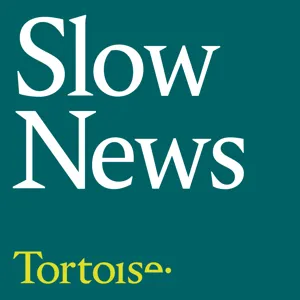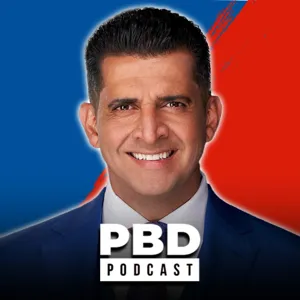Podcast Summary
Personalized weight loss plans and the UK's COVID-19 response: Noom's personalized weight loss plans can be effective, while the UK's initial response to COVID-19 raised important questions with lasting consequences
Personalized weight loss plans from Noom, like the one that helped Evan lose weight despite his dislike for salads, can be effective. Meanwhile, during the UK's response to the COVID-19 pandemic, the government's handling of the situation raised important questions. The UK's COVID inquiry is currently underway, and it's becoming clear that the government's initial dithering and delay in implementing lockdown measures were understandable given the newness of the pandemic. However, the consequences of these actions are still being felt. In other news, Blue Nile offers beautiful lab-grown diamonds at affordable prices, and Noom can help you lose weight with a personalized plan.
Government's handling of UK's second lockdown criticized: Despite clear scientific data, UK's second lockdown was delayed due to unpredictable leadership and disorganization, emphasizing the need for effective communication and decisive action in crises
That during the 43 days leading up to the United Kingdom's second national lockdown in October 2020, the government's handling of the COVID-19 pandemic was criticized for being unforgivable and inexcusable due to forgotten lessons from previous experiences. The prime minister, Boris Johnson, was described as unpredictable and difficult to manage, with his advisors using tactics to guide him in the right direction. Key scientific data showing the resurgence of the virus was presented to Johnson on September 18, 2020, but it took several days for him to agree to a lockdown. The disorganized and chaotic process behind the scenes was evident in the prime minister's delivery during the announcement. This incident highlights the importance of effective communication and decisive action in times of crisis.
UK Prime Minister's inconsistent decision-making during COVID-19 pandemic: The UK PM's indecisiveness, reluctance to challenge opposing views, and lack of transparency led to prolonged uncertainty during the early stages of the COVID-19 pandemic response.
During the early stages of the COVID-19 pandemic in the UK, Prime Minister Boris Johnson faced internal pressure to implement stricter measures to contain the virus, but his decision-making was inconsistent and based more on instinct and external influences than on expert advice. The prime minister's indecisiveness and reluctance to challenge opposing views led to a lack of agreement on lockdown measures and a prolonged period of uncertainty. The inclusion of skeptical experts in meetings was an attempt to provide the prime minister with a range of perspectives, but ultimately, his decisions were not guided by robust, evidence-based arguments. The hurrying of these meetings and the request for secrecy suggest a lack of transparency and a potentially ad hoc approach to decision-making during a critical time in the national response to the pandemic.
UK Government's Autumn 2020 COVID-19 Decision Making: Dominic Cummings manipulated PM's mindset for stricter lockdowns, while scientific advisors warned of 50,000 daily cases and 200 deaths per day if no action taken
During the autumn of 2020, the UK government was facing a critical decision on implementing stricter COVID-19 lockdown measures. A key figure in this process was Dominic Cummings, who reportedly manipulated the prime minister's decision-making process by orchestrating events, such as a "pretend it's October" meeting, to influence Boris Johnson's mental state. The government's scientific advisors, Chris Whitty and Patrick Vallance, gave a rare televised press conference to deliver a stark warning of the potential consequences of inaction. They projected that if the virus continued to double every 7 days, the UK would face 50,000 daily cases by mid-October, leading to over 200 deaths per day a month later. This projection faced criticism, but it underscored the urgency of the situation and the need for decisive action. The government's handling of this critical period is a subject of ongoing scrutiny and debate.
Government's response to COVID-19 influenced by various factors: The 7-day moving average of new COVID-19 cases was rising but not doubling, conflicting advice from advisors, media coverage, and unforeseen events influenced the government's response, leading to new restrictions and uncertainty.
The course of the COVID-19 pandemic and the government's response to it were influenced by a variety of factors, including scientific projections, public health measures, and media coverage. The discussion highlighted that the 7-day moving average of new cases was rising, but not doubling, and it was unlikely to reach 50,000 cases a day within two weeks as some had predicted. However, new restrictions were introduced in England, and the number of daily cases and deaths continued to rise. Additionally, meetings between government advisors and newspaper editors led to widespread media coverage of an impending second lockdown. Boris Johnson was presented with conflicting advice and faced pressure from various sources to take action. However, an unexpected event, a memorial service for the Battle of Britain, seemed to have a significant emotional impact on the prime minister and may have influenced his decision-making. Ultimately, the careful choreography of the government's response to the pandemic was disrupted by unforeseen circumstances.
Boris Johnson's Emotional Turmoil and Decision-Making: Boris Johnson's emotional state influenced his decision against a full lockdown, despite data and advice from advisors. The Battle of Britain Memorial Service left him questioning humanity's ability to cope, but he believed a full lockdown would lead to the worst outcome.
Boris Johnson's emotional state and considerations beyond data played a significant role in his decision-making process regarding the second lockdown during the COVID-19 pandemic. The Battle of Britain Memorial Service seemed to have left him distressed and questioning the human race's ability to handle the situation. This emotional turmoil, combined with his confidence in the data and advice from his team, led him to resist the lockdown suggestions from advisors Dominic Cummings and Patrick Valence. Despite the pressure, Johnson believed that a full lockdown would result in the worst of all worlds and ultimately chose not to implement it. This incident illustrates the complexity of political decision-making and the influence of emotional and psychological factors on leaders' choices.
Boris Johnson's struggle between public health and economy during COVID-19: Boris Johnson faced a tough decision between public health and economy during COVID-19, influenced by instincts and economic concerns, but ultimately had to implement stricter measures due to rising cases and deaths.
During the COVID-19 pandemic, Boris Johnson faced a difficult decision between prioritizing public health and the economy. He was influenced by his instincts and past hero, the mayor from Jaws, who kept the beaches open despite the danger. However, unlike a shark, a virus does not change its course, and Johnson's instincts proved to be wrong. The months of October 2020 were marked by frustration and hesitation as cases and deaths rose, and the economy suffered. Johnson faced pressure from advisors, such as Patrick Vallance and Chris Whitty, to implement stricter measures, but he was also influenced by economic concerns and the chancellor Rishi Sunak. The decision-making process was complicated by the fear of damaging the economy and the potential loss of businesses, particularly in the hospitality sector. Despite the urging of his advisors, Johnson hesitated, and it took a significant increase in cases and deaths for him to ultimately implement stricter measures.
Power struggle between Boris Johnson's advisers and skeptical backbenchers over lockdown measures: During the early stages of the COVID-19 pandemic in the UK, Boris Johnson faced pressure from advisers, backbenchers, newspaper editors, and owners not to implement strict lockdown measures. Skepticism over data accuracy fueled the debate, leading to a tiered system of restrictions instead.
During the early stages of the COVID-19 pandemic in the UK, there was a power struggle between Boris Johnson's advisers and his skeptical backbenchers over implementing lockdown measures. Newspaper editors and owners, whose views Johnson cared about, added pressure on him not to lock down, citing doubts about the accuracy of the data being presented. The memos and position papers circulating at the time were seen as part of a plot to remove Johnson and install someone else as prime minister. The COVID Recovery Group, a ginger group of Conservative MPs, opposed a second lockdown and put pressure on ministers to be more realistic. Despite rising COVID cases and hospital admissions, a tiered system of restrictions was implemented instead, which ultimately led to most areas ending up in the highest tier. The accuracy and reliability of the data and modeling presented to Johnson were a source of concern for some MPs, and they were not convinced that the decisions being made were for the right reasons.
Boris Johnson's Changing Stance on COVID-19 Policies: Initially, Boris Johnson resisted strict COVID-19 measures due to demographic factors. However, rising daily deaths led him to call for local lockdowns and eventually a second national lockdown.
Boris Johnson's stance on COVID-19 policies underwent significant shifts based on new data and personal instincts. Initially, he expressed a willingness to let the virus spread and argued against strict lockdown measures due to the higher median age of fatalities and the fact that most hospitalizations affected older adults. However, as the number of daily deaths continued to rise, reaching nearly 400 per day, Johnson's position changed dramatically. He called for local lockdowns and eventually announced a second national lockdown. The reasons for this shift remain unclear, but the mounting death toll likely played a crucial role. Johnson's inconsistent messaging and the delayed implementation of stricter measures have been criticized during the COVID-19 inquiry.
Political uncertainty and confusion in UK's response to second wave: The UK's second wave response was marked by political uncertainty and confusion, leading to unnecessary deaths. Boris Johnson's inconsistent approach worsened the situation, but the weaknesses of the political system and parties played a role in the wrong leaders rising to power.
The UK's response to the second wave of COVID-19 was marked by political uncertainty and confusion, resulting in thousands of unnecessary deaths. Boris Johnson's position on lockdown measures was not an isolated view, but held by a significant portion of the cabinet and the public. However, his inconsistency and hesitance in implementing stricter measures led to a delay in controlling the epidemic, resulting in a higher death toll compared to the first wave. The COVID-19 inquiry will provide valuable lessons, but it's clear that having the wrong prime minister for the situation was a significant factor. Despite the criticism, it's important to remember that personalities cannot be completely removed from the equation, and the pandemic would have looked different under different leaders. However, the weaknesses of the political system and parties allowed for the wrong people to rise to power, contributing to the tragic outcome.
Boris Johnson's Inner Circle and the Cost of Poor Decision Making: During the first wave of COVID-19 pandemic, Boris Johnson's dysfunctional inner circle, led by Dominic Cummings, resulted in poor decisions like delaying a second lockdown, costing many lives and impacting mental health, education, and ethnic minorities. Strong leadership and inclusive decision-making are crucial during crises.
Boris Johnson, the prime minister during the first wave of the COVID-19 pandemic in the UK, was heavily influenced by a dysfunctional inner circle, which included Dominic Cummings. Despite the chaos and malicious behavior surrounding him, Johnson's cabinet secretary, who could have been a voice of reason, was overwhelmed and unable to challenge him. The result was a series of poor decisions, including the delay of a second lockdown, which ultimately cost many lives and had far-reaching consequences on mental health, education, and ethnic minorities. The system, however, did manage to deliver significant power to Johnson, allowing him to be weak and indecisive. The podcast discussion also highlights the lack of women's voices in key decision-making roles during that time. The episode serves as a reminder of the importance of strong leadership and the potential consequences of poor decision-making during a crisis.






